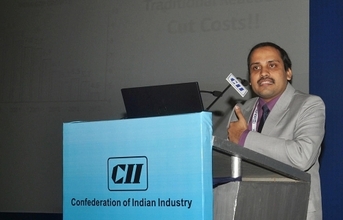
The Indian Prime Minister Narendra Modi's initiative of 'Make in India' has been widely welcomed by organisations and industry bodies alike. For such an aspiration to become a reality there needs to be catalyst that supports the journey.
The Confederation of Indian Industry (CII) and Breakthrough Management Group India (BMGI) appear to have answered this question at their 5th Manufacturing Innovation Conclave, which was held around the theme: Innovation as the Key Catalyst for Make in India.
As the knowledge partner for the event held at ITC Maurya, New Delhi on the 19th June 2015, BMGI set the theme and the context. The event was organised by CII, which works to create and sustain an environment conducive to the growth of industry in India.
The event comprised thought leaders from across the world with senior management representations from reputed organisations like Rolls-Royce India Pvt Ltd, Cummins India Ltd., Tata Consultancy Services, Ricoh India, Hero Motor Corp, Tata Power Ltd., Punj Lloyd Group to name a few and representations from industrial and governing bodies like the National Research Development Corporation (NRDC).
The key takeaways from the event were the learning that it is important to foster the culture of innovation, there cannot be a structure for innovation, synergy between creativity and innovation, mindset which played a key role to create, adopt and specified that everyone in the organisation has a role to play. Ultimately innovation is necessary to drive India ahead with focus on sowing seeds for academia, leveraging 3D printing, PLM and simple innovation techniques.
Sameer Gupta, Chairman, CII Manufacturing Innovation Conclave '15 & Chairman CII - UP State Council & Managing Director, Jakson Group, welcomed the guests and provided the opening remarks. Underlining the importance of innovation for a country's growth and well-being, he compared the R&D spends by various developed and developing countries in the world.
Nirmalya Banerjee, Business Head at BMGI, explored the reasons why anyone would want to manufacture in a particular country. Explaining that the reasons couldn't go beyond making it cheaper, better or faster, he shared that India needs to currently move beyond making manufacturing cheaper for global organisations to come and 'Make in India'.
Continued to next page
